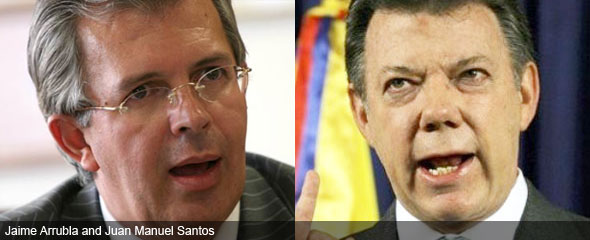
Despite the ongoing feud between outgoing President Alvaro Uribe and Colombia’s judicial system, the country’s Supreme Court announced on Monday it is willing to meet with President-Elect Juan Manuel Santos, reports El Espectador.
“There is a willingness to sit down and have a conversation with the government,” Supreme Court acting president Jaime Arrubla said in regard to a potential meeting with Santos.
According to Arrubla, a meeting with Santos is definitely possible, but not with Uribe.
In his acceptance speech following his election to the presidency Sunday evening, Santos also said that the current “train crash” between the executive and the judiciary is “unhealthy” and promised to meet with the courts to find a solution as to how they can work in harmony.
Last Thursday, the Supreme Court rejected Uribe’s request for a meeting to address several controversial issues that have recently caused friction between the two branches of government.
Tensions between Colombia’s exectuve and judicial branches have been mounting in recent months.
Two weeks ago, the Supreme Court cancelled a meeting with Uribe scheduled to discuss Colombia’s extradition treaty with the U.S., because it felt that the head of state was undermining the court’s jurisdiction.
According to Arrubla, numerous comments made by Uribe regarding the court had made a meeting inappropriate.
“Definitively it can be said that the comments made by the president last week created a mood of disharmony for a meeting of this nature,” Arrubla said.
Uribe lashed out two weeks ago at the Colombian judiciary for its sentencing of retired army Colonel Alfonso Plazas Vega for his role in the 1985 Palace of Justice siege. The outgoing president has also criticized the judiciary’s arrest order for Mario Aranguren, former director of the government’s Financial Information and Analysis Unit, who is accused of involvement in the illegal wiretapping undertaken by the country’s security agency DAS.
Uribe called the arrest an “injustice” that causes a “lack of confidence” in the country’s justice system, and suggested that there may be other interests being served by the issue of the warrant.

